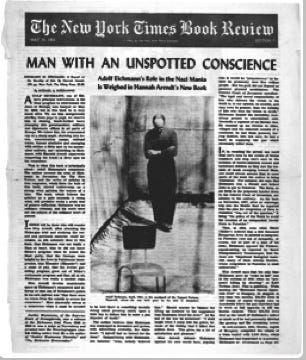There’s this ad that has irked me since I first saw it a few years ago—a recruiting ad produced by the U.S. Army’s 4th PsyOp Group:
It’s effective, for sure. The Germans have a great word for it: unheimlich. Eerie, unsettling. The ad is also cool—“sick,” as the kids would say—with a huge dose of hubris shot through it.
And why not? It sells transgression, for a cause. The PsyOp Group’s stock in trade is psychological warfare, waging war “from the shadows.” Its target is the mind of the enemy and, by the look of it, of unwitting foreign civilians too.
A second ad, “Ghost in the Machine 2,” piles the sensory stimuli even higher. Elemental imagery of fire, the Group’s horse head, and an ominously ticking watch foreground cryptic messaging about invisible hands igniting emotions. A murdered past president extols freedom and the truth of art. An old-school behaviourist sets out the basics of psychological conditioning—all to a musical score that could have been lifted from Independence Day.
Of course, the ads themselves are not in the shadows; they’re on YouTube for all to see. Recruits or no, viewers will be awestruck by the power of the U.S. Army to steer world events.
Yes—the 4th PsyOp Group’s recruitment ads are themselves psyops, exemplars of a growing list of products created by government “nudge units.” We find similar such products in advertising, together with the technical means—at corporations like Google, Facebook, and Amazon—to surveil consumers at scale.
Was it only five years ago that Harvard psychologist Shoshana Zuboff warned of an age of “surveillance capitalism,” a “coup from above” channelling consumer behaviour for profit? Two years later, in 2021, Israeli pop-historian Yuval Noah Harari cheerfully announced that “humans will soon be hackable animals.”
Before long, Harari submitted, algorithms will know us better than we know ourselves. All that remains is for them to access bio-chemical processes from our bodies to predict our choices, manipulate our desires, make decisions on our behalf.
Harari states out loud what the nudgers assume. Free will, individuality? Fairy tales. Human beings? A complex stew of bio-chemical reactions. And the clincher: Accept the inevitable. Outsource your decisions.
You’ll be safer, better off.
Happier.
Radio Head, God love ‘em, saw this one coming three decades ago:
The bottle may be new, but the wine is not—in fact, it may be the oldest of all. “Surrender to the algorithm” is just the latest iteration of an age-old command.
And it demands a stark choice.
Will you sacrifice your intellect to whatever messaging today’s ghosts in the machine throw at you? Or will you, rather, insist on using your own lights? Will you orient your mind on what’s real and lasting?
Will you decide to think?
This post examines insights from Hannah Arendt, a thinker who observed the fall-out of a failure to think first-hand. It is the second of three posts that seek guidance from political philosophers Hannah Arendt and Eric Voegelin in facing an alarming failure of thought in our own time. The last post presented Arendt’s assessment of ideologies and Voegelin’s mocking stance toward them. This post and the next one focus on the recovery, on reclaiming the one thing that defines us as homo sapiens—our reason.
The time frame shifts from the 1930s to the 1960s. Twenty years after the collapse of Nazi Germany and the discovery of the administrative murder of millions, Arendt and Voegelin again faced a morass of ethical confusion.
At its base, once again, was a failure of thought.
Hannah Arendt in Jerusalem

Hannah Arendt first published Eichmann in Jerusalem in 1963. Based on a series of articles she wrote for The New Yorker, it was her most controversial book.
The Israelis had kidnapped Adolf Eichmann in 1960 and brought him to trial in Jerusalem. A mid-level Nazi bureaucrat, Eichmann had not personally killed anyone. From 1942 to mid-1945, however, he had been a key participant in executing the Final Solution, knowingly organizing transports of human cargo destined for extermination.
Eichmann’s induction into the conspiracy of mass murder came when he helped organize the 1942 Wannsee Conference. Here, Nazi political leaders disclosed their plan for the Final Solution to the heads of the civil service. The assembled bureaucrats not only accepted the plan, but immediately proposed means to implement it.
Arendt records Eichmann’s words on the conference at his trial. “At that moment,” he stated, “I sensed a kind of Pontius Pilate feeling, for I felt free of all guilt.” The most prominent representatives of the Third Reich had spoken. Who was he to judge?
Arendt attended the entire Eichmann trial. Daily, she sized up the man on the stand. Far from the monster many needed him to be, she discovered a quite ordinary person —which she found all the more frightening:
The trouble with Eichmann was precisely that so many were like him, and that the many were neither perverted nor sadistic, that they were, and still are, terribly and terrifyingly normal (276).
Eichmann was a careerist, certainly, but under circumstances other than the National Socialist regime, might never have committed a crime:
Except for an extraordinary diligence in looking out for his personal advancement, he had no motives at all. And this diligence in itself was in no way criminal; he certainly would never have murdered his superior in order to inherit his post. He merely, to put the matter colloquially, never realized what he was doing (287).
And this, in Arendt’s view, was his failure. To the end, Eichmann failed to grasp his personal role and responsibility in the monstrous crime put to him. “In principle,” Arendt concedes,
he knew quite well what it was all about, and in his final statement to the court he spoke of the ‘revaluation of values prescribed by the [Nazi] government.’ He was not stupid. It was sheer thoughtlessness—something by no means identical with stupidity—that predisposed him to become one of the greatest criminals of that period. And if this is ‘banal’ and even funny, if with the best will in the world one cannot extract any diabolical or demonic profundity from Eichmann, that is still far from calling it commonplace (287-88).
Eichmann’s murders were indeed a crime, and others did grasp what was at stake. Arendt also recounted examples—though dishearteningly few—of individuals who managed to head off demands that they become complicit in mass murder.
Yet most went along.
From this, she reached her thesis of the “banality of evil.” Eichmann did not intend to do wrong. But neither did he give a thought to the real-world effects of his actions or the ethical standards that had been substituted for their opposite.
Hence, Arendt’s conclusion:
That such remoteness from reality and such thoughtlessness can wreak more havoc than all the evil instincts taken together which, perhaps, are inherent in man—that was, in fact, the lesson one could learn in Jerusalem (287-88).
The Aftermath
Even before the book appeared, her reporting touched off a curious reaction.
Arendt faced enormous blow back from what she called the “American literati,” largely against her discussion of the culpability of Jewish organizers and camp inmates who had helped murder other Jews.
Arendt described the essence of the accusations in her 1964 essay, “Personal Responsibility under Dictatorship.”
I was told that judging itself is wrong: no one can judge who had not been there. This, incidentally, was Eichmann's own argument against the district court's judgment. When told that there had been alternatives and that he could have escaped his murderous duties, he insisted that these were postwar legends born of hindsight and supported by people who did not know or had forgotten how things had actually been (18).
Behind this position, the political theorist detected an evasion, one consistent with thinking on the basis of ideologies. Rather than holding people responsible for deeds they committed, those who refused to judge blamed them on larger historical forces—“in short on some mysterious necessity that works behind the backs of men and bestows upon everything they do some kind of deeper meaning.”
She found this reticence to judge concerning:
For behind the unwillingness to judge lurks the suspicion that no one is a free agent, and hence the doubt that anyone is responsible or could be expected to answer for what he has done (19).
Eichmann’s argument—which too many accepted—was that he could have been any German. It was a logic that the Jerusalem court did not accept. Nor did Arendt, who spoke directly to Eichmann in her conclusion:
And no matter through what accidents of exterior or interior circumstances you were pushed onto the road of becoming a criminal, there is an abyss between the actuality of what you did and the potentiality of what others might have done. We are concerned here only with what you did, and not with the possible noncriminal nature of your inner life and of your motives or with the criminal potentialities of those around you (278).

The advice to think and judge for oneself, even to notice when established moral precepts are substituted for their opposites seems almost comically old-fashioned. It reads like the admonition of a parent: And where was the algorithm when you got caught? Where are your new friends now, the ones who “nudged” you to do this?
Yet that advice bears repeating, as too many have fallen into unthinking habits. It is indeed possible to retreat into thoughtlessness, to outsource our decision-making to others, potentially even to an algorithm. But as homo sapiens, we can—and might and should—be held to account for the consequences of our decisions.
Adolf Eichmann is a limit case. In a time of pronounced thoughtlessness, though, his example offers a stark illustration. To surrender thought and judgment is an eternal temptation. It is also a potential curse.
Such a person could be talked into doing anything.
Do you want to take that risk?
Further Reading
Hannah Arendt, Eichmann in Jerusalem: A Report on the Banality of Evil. New York: The Viking Press, 1964.
Hannah Arendt, “Personal Responsibility Under a Dictatorship.” Essay based on a lecture delivered in 1964.
Kathleen B. Jones, “The Trial of Hannah Arendt,” Humanities, Vol. 35, No. 2 (March/April 2014).




Thank you once again, Jodi, for a powerful post on Hannah Arendt and her insights on the banality of evil. Once upon a time I had a hard time understanding how a failure to think could lead to such whosesale evil. No longer. I've been stunned by the willingness to not know.
Is the problem not thinking, not judging for oneself? Or not knowing what to think and how to judge for oneself? Or in short, not knowing the truth? And whatever one thinks/judges the problem to be, is the problem one with a solution -- if so, what do you suppose it is? -- or just part of the unavoidable existential situation of human beings?
Are Arendt's insights insightful or banal? Isn't it a rather banal observation that evil is banal? Didn't everyone recognize that at one point? Isn't it mere naivete, blindness, deception to think that evil must be lurid and sensational and viscerally horrifying -- IOW, easily recognizable? (I really don't know about Arendt. I've long been curious about her without having found the opportunity to actually read much of her work -- thanks to your piquing my interest, her Eichmann book is on the way!)